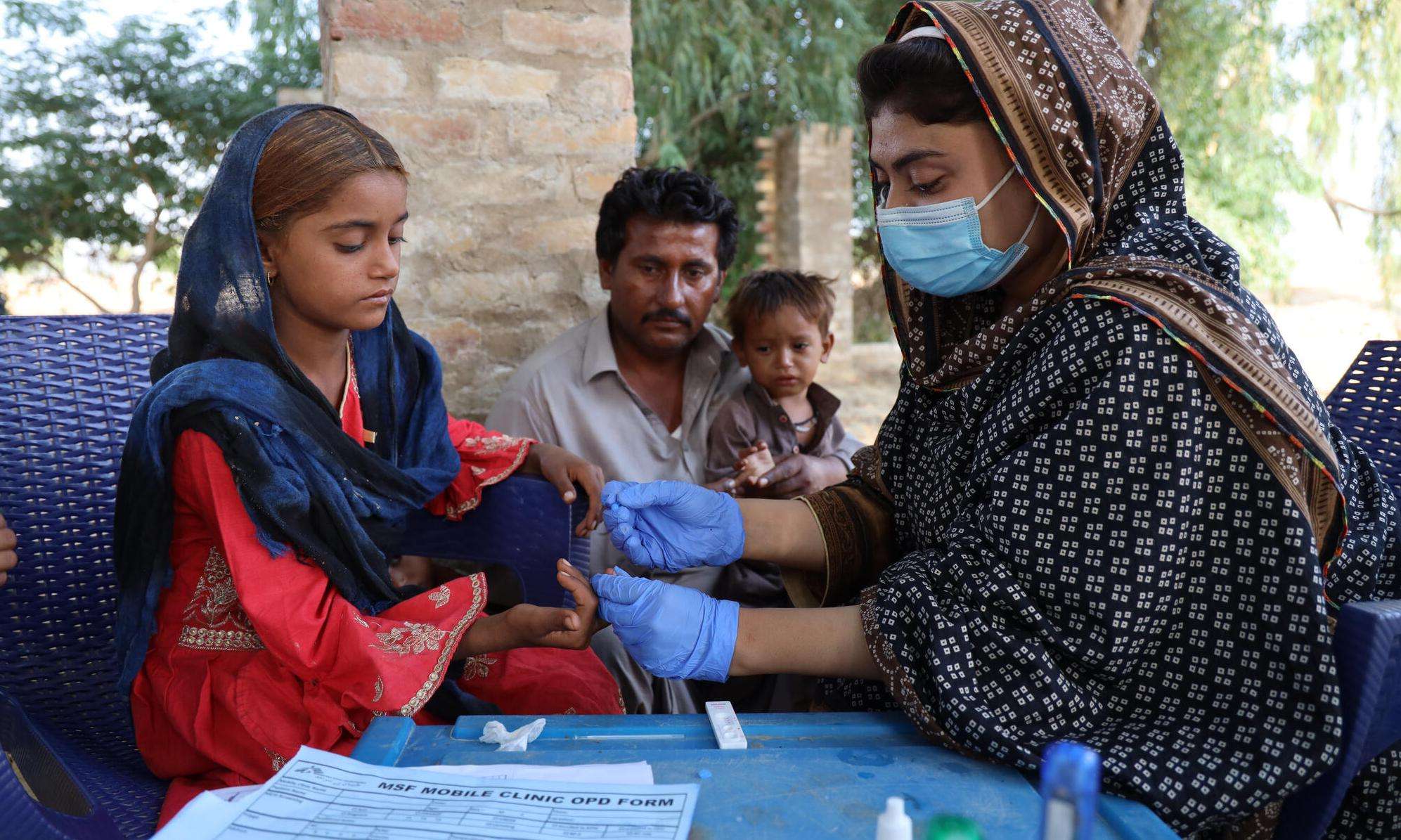NEW YORK/SINDH, JANUARY 9, 2023—While it has been more than six months since catastrophic flooding caused by unusually heavy monsoon rains hit Pakistan, the international medical humanitarian organization Doctors Without Borders/Médecins Sans Frontières (MSF) is seeing alarmingly high numbers of people with malaria and malnutrition among flood-affected communities. Humanitarian organizations and government agencies involved in the response must step up their efforts to ensure people’s basic needs are met, including those of food, health care, safe drinking water, and shelter, said MSF as the government of Pakistan and the United Nations host the International Conference on Climate Resilient Pakistan today. Experts warn that climate change likely contributed to this year's "monster monsoon" season, a stark wake-up call alerting the world to the threats posed by the climate emergency.
“We are months into this response and our teams in Sindh and eastern Balochistan provinces still see people living in tents and makeshift shelters,” said Edward Taylor, MSF’s emergency coordinator in northern Sindh and eastern Balochistan. “While the focus is shifting towards recovery and reconstruction, a scaled-up humanitarian response to meet people’s immediate needs is absent. In the areas where we are working, water has yet to recede, and the emergency medical and humanitarian needs remain high. Humanitarian organizations and government agencies involved in the response must not forget that the situation remains critical.”
For example, MSF teams are seeing high numbers of people in need of treatment for malaria in Sindh and eastern Balochistan as stagnant water continues to stand in many places, providing a breeding ground for mosquitos. Despite the colder season—a time when malaria rates usually decline—MSF teams saw positivity rates of 50 percent in December among patients screened in its mobile medical clinics. Additionally, teams have treated more than 42,000 people with the disease since October.
MSF is also seeing alarming numbers of acute malnutrition in its medical clinics in northern Sindh and eastern Balochistan as the floods have destroyed extensive fields of crops and livestock. Since the start of its activities in these regions in August, teams have screened 28,313 children for malnutrition via mobile medical clinics. Of those screened, 6,489 children had severe acute malnutrition and 8,738 had moderate acute malnutrition, comprising more than half of the children who arrived at MSF’s clinics.
Overall, MSF emergency teams have provided basic medical care to more than 92,000 people since the flooding began, mainly for skin diseases, malaria, respiratory tract infections, and diarrhea. Teams are also providing psychological first aid and group counselling sessions as people cope with the devastating loss of homes and belongings. Additionally, MSF is distributing non-food items like blankets to people still living in makeshift shelters in these winter months. Teams are also providing safe drinking water to prevent the spread of communicable diseases in rural communities where water supplies have been contaminated.
"Ensuring adequate food, water, sanitation, health care, and shelter must be a priority for the international and national response to the catastrophic flooding in Pakistan," Taylor said. "Many people in affected areas have immediate, urgent needs that cannot wait. We are still very much in an emergency phase."
MSF began working in Pakistan in 1986 and now has 1,738 locally-hired staff and 53 international staff providing quality medical care to people in Punjab, Balochistan, Khyber Pakhtunkhwa, and Sindh provinces.
How you can help
Not everyone can treat patients in the field. But everyone can do something.
Some humanitarian crises make the headlines—others don’t. Unrestricted support from our donors allows us to mobilize quickly and efficiently to provide lifesaving medical care to the people who need it most, whether those needs are in the spotlight or not. And your donation is 100 percent tax-deductible.




